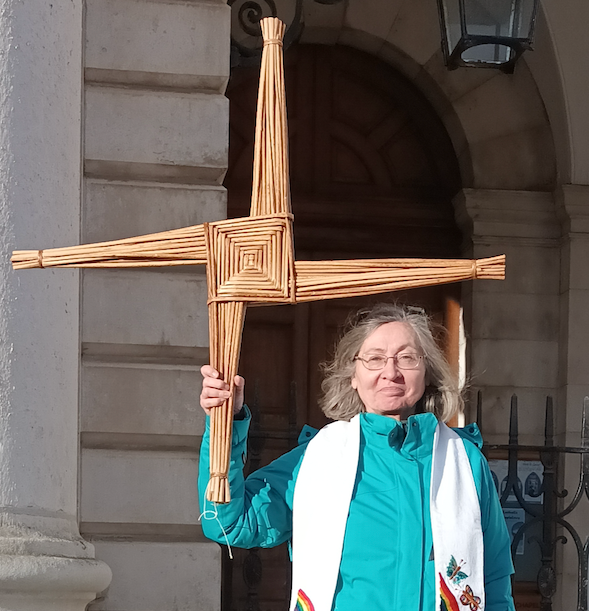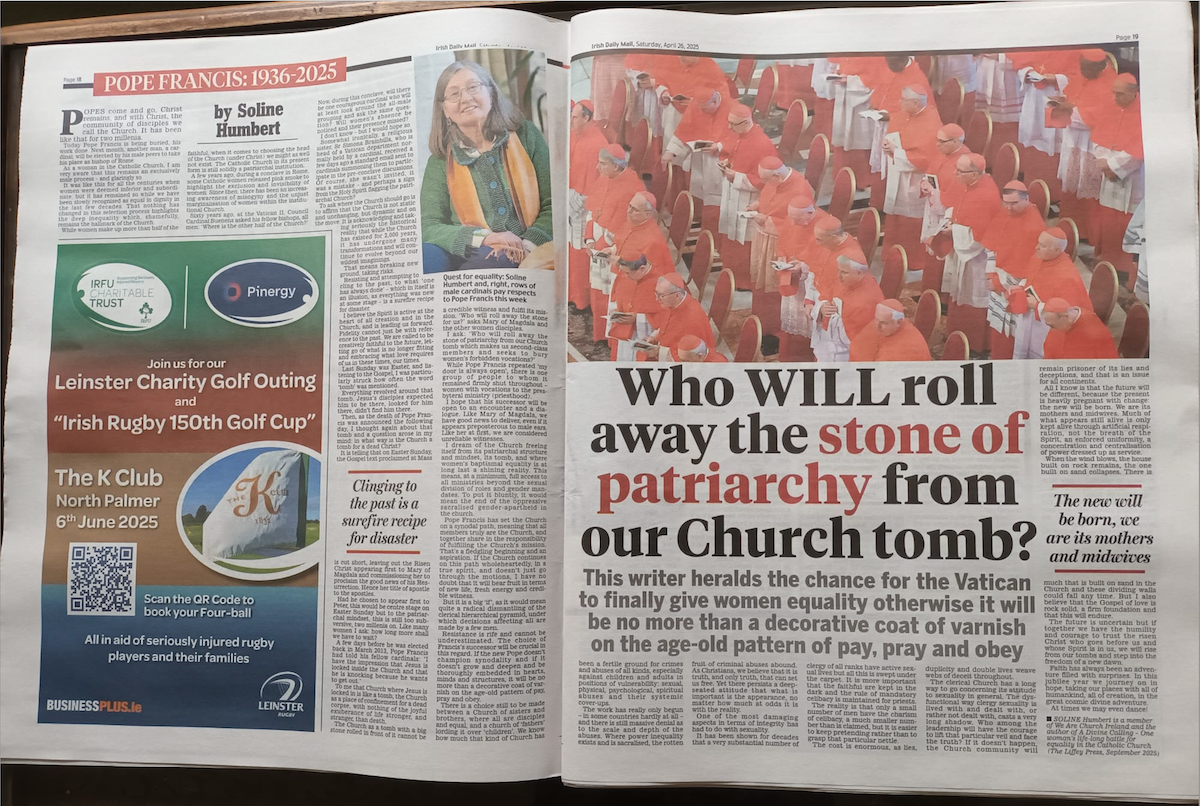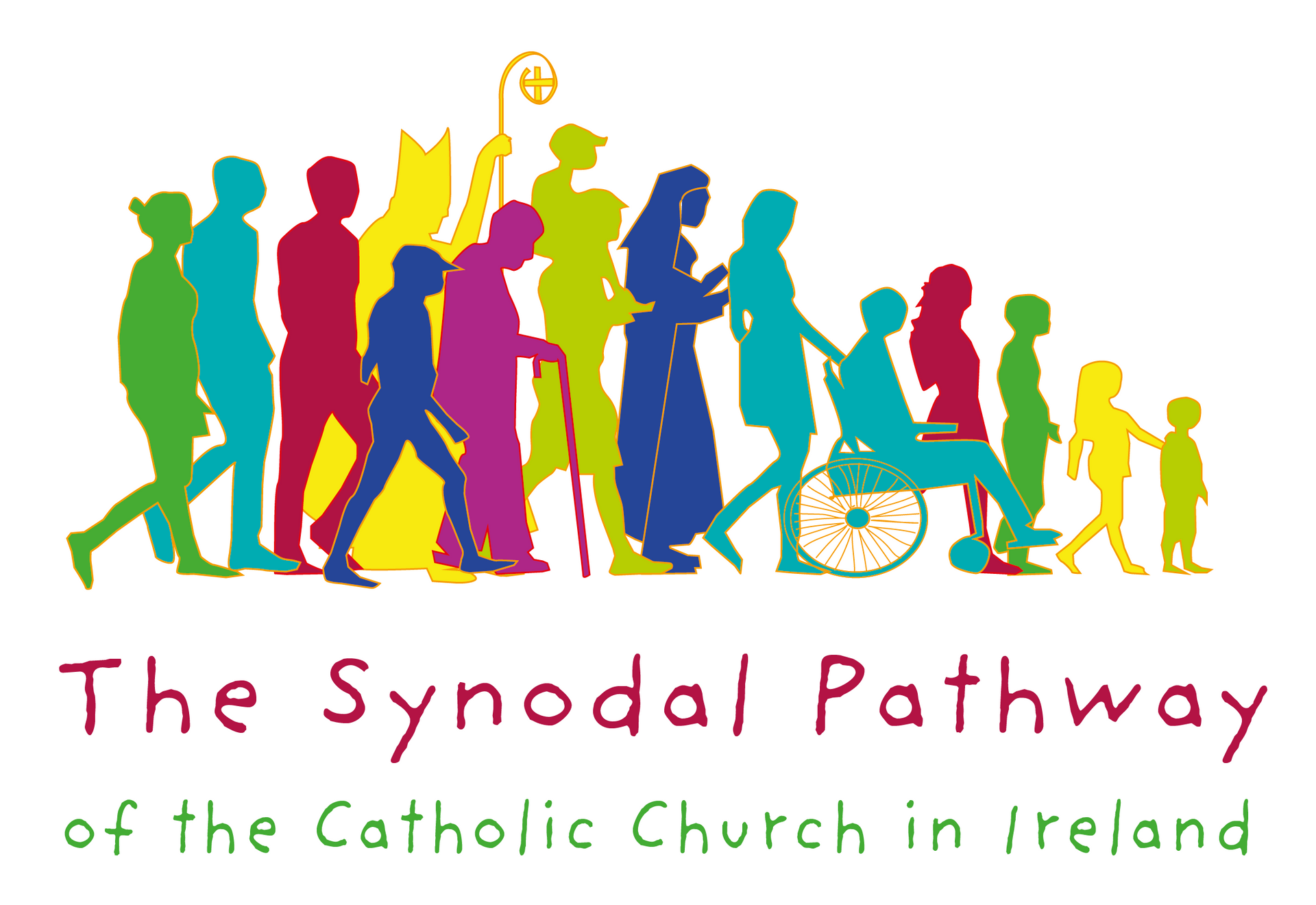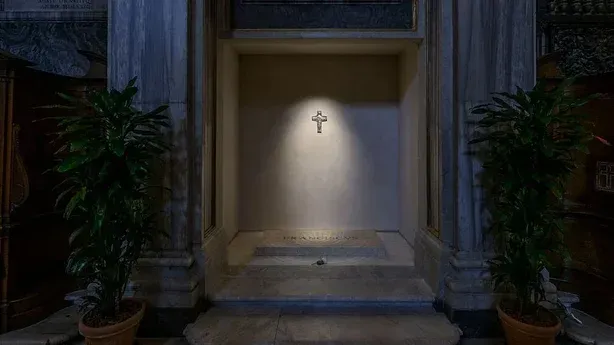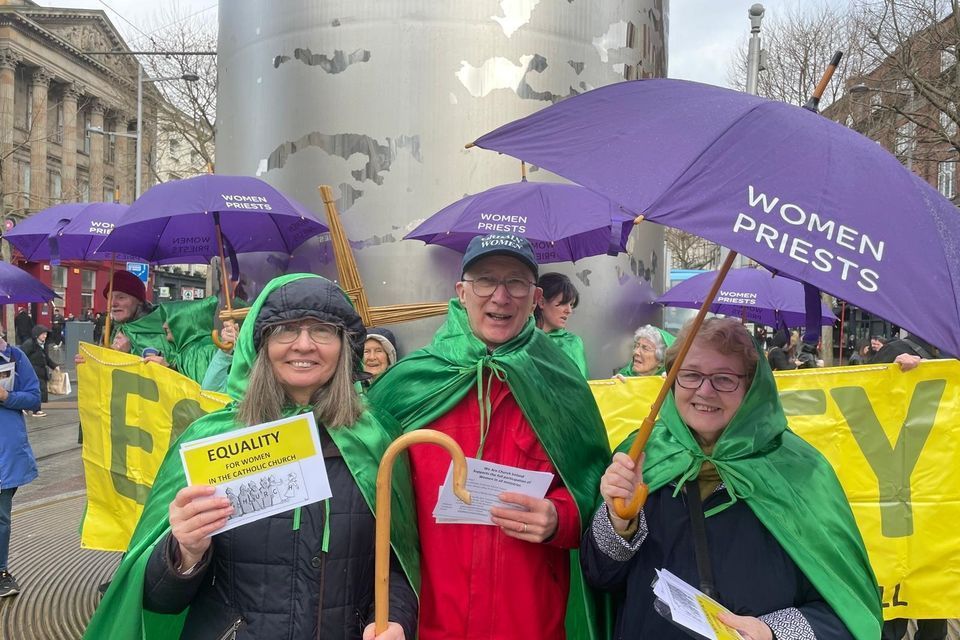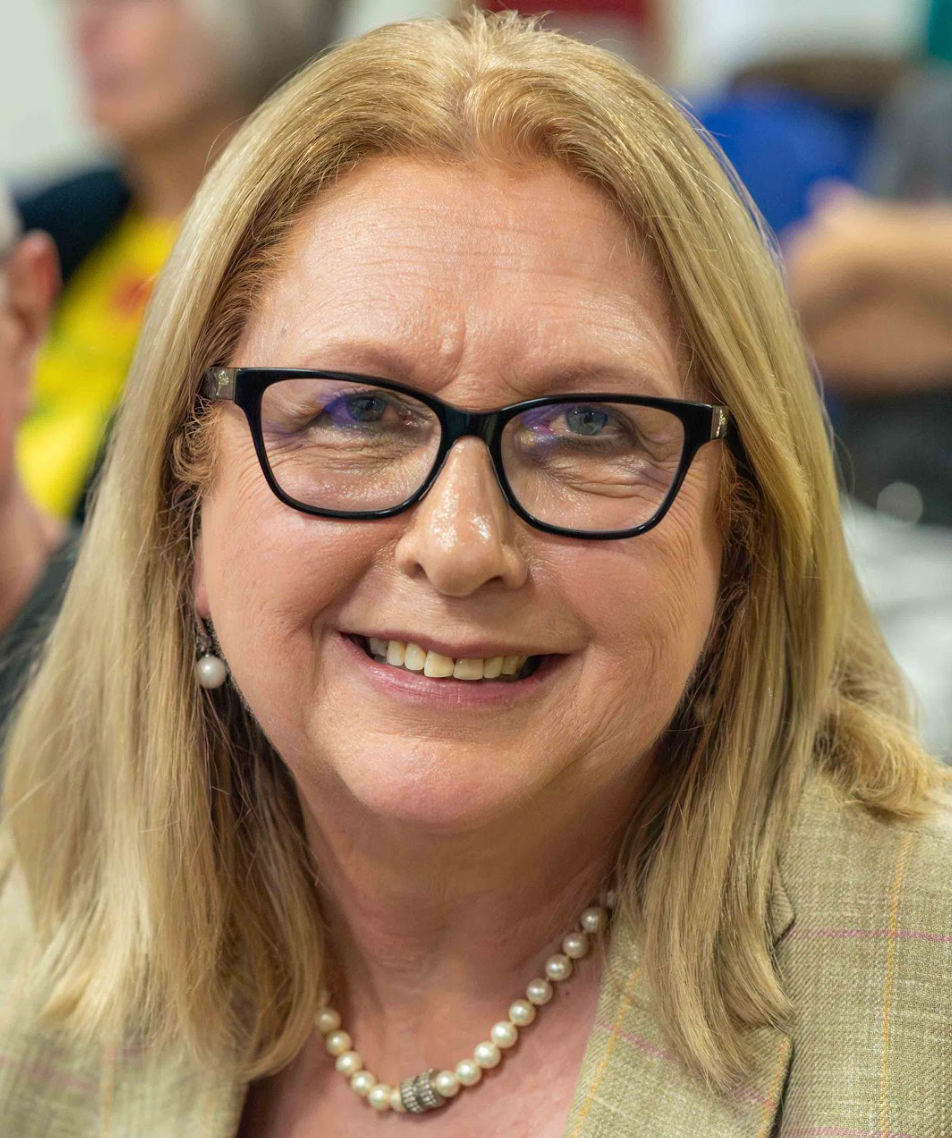Women are a problem for the Catholic Church, an institution with ingrained misogyny - Soline Humbert
Papal plámás is no substitute for an end to discrimination against women

The Catholic Church is bedevilled by sex ... the female sex. Church men, who claim a privileged insight into the mind of God, earnestly agonise over what women can be and do. Mostly, what they can’t be and can’t do. Obstat sexus: “her sex prevents her”. It is ubiquitous and overrides Christ’s great commandment “love one another as I have loved you”.
Three years ago the Catholic Church worldwide embarked on what it called a synodal journey, described as the largest consultation process ever, involving in theory at least, every church member. This led to two assemblies in Rome, one last year and the final one which just concluded last weekend.
A 52-page document is the fruit of that process. Each of the 155 paragraphs was voted on by the members, mostly bishops but with some “non–bishops” too, including 14 per cent of women. Women had campaigned long and hard to get these few votes.
All through his pontificate Pope Francis has reaffirmed: ‘That door is closed.’
In September an obituary for American Sr Teresa Kane reminded us how in 1979 she had made worldwide news when she publicly implored John Paul II: “The Church, in its struggle to be faithful to its call for reverence and dignity for all persons, must respond by providing the possibility of women as persons being included in all the ministries in our church.” Not only did this fall on deaf ears but the closed doors got even more tightly locked and woe to whoever dared raise the issue.
All through his pontificate Pope Francis has reaffirmed: “That door is closed.” Not just to the priesthood. Asked whether a young girl could dream of becoming a deacon his curt answer was “No”.
So it is hardly news when in 2024 the Synodal Document states: “By virtue of Baptism, women and men have equal dignity as members of the People of God. However, women continue to encounter obstacles in obtaining a fuller recognition of their charisms, vocation and roles in all the various areas of the Church’s life. This is to the detriment of serving the Church’s shared mission.”
Women deacons will continue being studied ‘ad infinitum’ in a Vatican commission.
The issue of women’s second-class status generally, and their ordination to the diaconate and presbyterate, was raised in many countries during the earlier consultation phases, including here in Ireland, but was filtered out. Any mention of women priests was carefully excised. Out of sight, out of mind.
Women deacons will continue being studied “ad infinitum” in a Vatican commission. This is the 4th commission and the second one under Pope Francis; the first one set up in 2016 never published its findings, and this one, set up in 2020, still hasn’t produced an interim report. No hurry since in any case the female diaconate is deemed “not ripe”.
Women are half of the church but end up being a category, an issue, a problem in a patriarchal institution with ingrained misogyny.
In fact, this women’s issue was deemed too contentious to be on the table at last month’s synodal gathering. Pope Francis entrusted it to the Dicastery for the Doctrine of the Faith (DDF) who will report, if possible, next June.
The DDF is an all-male clerical body with 28 consultors, mostly Italian priest theologians and six women. They are studying women saints, mystics, doctors of the church. Dead women, safely canonised, are easier to deal with than live ones, especially those with a calling deemed impossible because “her sex prevents it”.
It doesn’t matter whether one has the same mind that was in Christ Jesus, one must have the same sex.
Coinciding with the opening of the Assembly last month, Pope Francis published a book on women: Sei Unica (You are unique), subtitled: A Hymn To The Feminine Genius. The seven special talents he lists are obviously not needed in the ordained ministries. It’s hard not to cringe at the stereotyping. All the papal plámás in the world are no substitute for equality, justice and an end to discrimination.
When I read in the document its recommendation for more women to be involved in training men for the priesthood, I thought of another woman who had also just died. As a Dominican Sister in South Africa, Patricia Fresen had courageously fought the apartheid regime.
To answer her call she was ordained in the Roman Catholic Women Priests movement and ministered as a priest and a bishop.
Later when she trained seminarians to deliver homilies, she became aware that as a woman she could never preach at Mass and her eyes were opened to the gender apartheid in the church, which is no more godly than the racial one was. To answer her call she was ordained in the Roman Catholic Women Priests Movement and ministered as a priest and a bishop.
No more walking the synodal pathway hopelessly kicking cans down the road. That gender apartheid must be dismantled now. The Gospel requires it and the Spirit shows the way.
Soline Humbert is a spiritual director and the author of the forthcoming memoir 'God Calls, Rome Stalls'
Rite & Reason; The Irish Times; 3 November 2024
